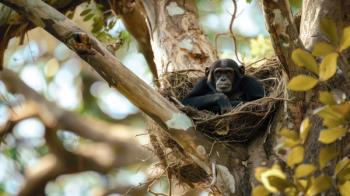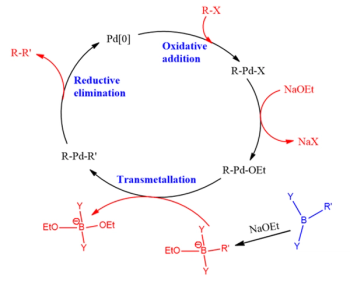
ASMS 2023: A Look at Wednesday's Evening Workshops
Here, we preview the 16 Wednesday evening workshops that will take place from 5:45–7:00 pm at ASMS.
From 5:45–7:00 pm on Wednesday evening, 16 technical workshops will be held at ASMS 2023. Below is a brief overview of each workshop, their location, and what will be discussed.
The first workshop, titled “High throughput screening mass spectrometry - current status and future landscape”, is set to take place in Room 310 A. Kiran Iyer and Jeremy Manheim will be presiding over the workshop, which will discuss the status, obstacles, developments, and future outlook of high throughput screening–mass spectrometry (HTS–MS) systems.
The second workshop, located in Room 310BC, is titled “Late-Night Lightning Lectures”. Emily Sekera will preside over the session, which will allow poster presenters 90 seconds to summarize one slide over their own choosing, giving them a chance to test their knowledge-translation skills.
The third workshop is titled “Utilizing GC/MS Technologies and Associated Software Tools to Address Challenging Applications in the Flavor, Fragrance and Foodstuffs Laboratory”, and is in Room 320A. It will be presided over by Joe Binkley and Liz Humston-Fulmer, with a focus on GC–MS technologies and other software tools, and how these systems function in producing foodstuffs.
The fourth workshop will be in Room 320BC and is titled “Biomarkers Development: How Mass Spectrometry Is Changing the Field”. Wenkui Li and Jian Wang will preside over the session, which will discuss how several types of mass spectrometry have revolutionized the creation of biomarkers.
The fifth workshop, “Ion Mobility Spectrometry: From Data to Structure”, will be held in Ballroom A and presided over by James Prell and Xueyun Zheng. Its focus will be on the challenges of using ion mobility spectrometry to characterize ion structure.
The sixth workshop, located in Ballroom B, is titled “MS Career Options: How to Kick Start Your Career”, and will be presided over by Christopher Pulliam and Ryan Bain. Here, representatives from varying careers will relay their journeys and answer questions regarding their experiences.
The seventh workshop is titled “Ambient Ionization in Application Fields: What is Required, Desired, and Provided?” It will be held in Ballroom C, with Chris Gill, Roshan Javanshad, and Jacob Jordan presiding over the discussion. This workshop will focus on ambient ionization MS, its current versatility, and what figures of merit (FoMs) should be adjusted for the future of the technique.
The eighth workshop, “Target Protein Degradation and MS-based Proteomics”, will be held in Room 3332 and presided over by Pankaj Dwivedi. The topic at hand will be the evolution of Target Protein Degradation (TPD), and the opportunities/challenges that come with MS-based proteomics for TPD.
The ninth workshop will be in General Assembly A and is titled “What are the future needs of photoionization mass spectrometry for complex mixture analysis?” Christopher Rüger will preside over the event, which will involve short presentations and a discussion on how photoionization MS must evolve to be useful in analyzing complex mixtures.
The tenth workshop is titled “Houston, We Have a Microbiome Problem (...and how the Metaproteomics Initiative aims to solve it!)” Taking place in General Assembly B, the workshop involves a panel of leading metaproteomics experts discussing the current status of metaproteomics and what needs to change in the future, encouraging audience interaction all the while. This workshop will be presided over by Pratik Jagtap, Robert Hettich, Timothy Griffin, and Tim Van Den Bossche.
The eleventh workshop will be in General Assembly C and is titled “Hispanics and Latinx in Mass Spectrometry”. Presided over by Benjamin Garcia, Livia Eberlin, and Francisco Fernandez Lima, the workshop will be the first official meeting of the Hispanics and Latinx in Mass Spectrometry outside interest group. In addition to showing in-progress research from Hispanic/Latinx scientists, speakers will discuss their career journeys, all while allowing audience discussion and highlighting the work of Hispanic/Latinx scientists of all ages.
The twelfth workshop, titled “Polymeric materials: tackling hydrocarbon-based polymers”, will be held in Room 340AB and presided over by Thierry Fouquet and Anthony Gies. This workshop will focus on polymeric materials and how different MS techniques are currently used, or should be used, to analyze them.
The thirteenth workshop, located in Room 351ABDE, is titled “ProteomicsML: An online educational platform for machine learning in proteomics” and will be presided over by Juan Antonio Vizcaíno. This will highlight the importance of public proteomics datasets and highlight the different functionalities of the ProteomicsML platform.
The fourteenth workshop, “Art, Museums, and Archaeology”, will be held in Room 351CF and presided over by G. Asher Newsome and Paul A. Haynes. This workshop will highlight the different ways mass spectrometry is used to study different art pieces using both previously developed techniques and new approaches that are developed as needed.
The fifthteenth workshop is titled “Remote Sample Collection and Microsampling is Driving New Mass Spectrometry Analytical Solutions” and will be presided over by Donald Chace and Timothy Garrett. Located in Room 360ABDE, this workshop will discuss the rapidly evolving nature of MS and how important of a role MS plays in remote sample collection and microsampling.
Finally, the sixthteenth workshop, “Knowledge Share and Instrumentation Donations for Developing World Outreach”, will be in Room 360CF and presided over by Giles Edwards and Kym Faull. This workshop will serve as a discussion platform for people to share their ideas on how we as a society can assist in deploying mass spectrometry as a key analytical technique to address educational, health, environmental and economic issues in the Developing World.
Newsletter
Join the global community of analytical scientists who trust LCGC for insights on the latest techniques, trends, and expert solutions in chromatography.




